Chemistry Notes Form 1
Chemistry Notes Form 1
Chemistry Notes Form 1
Chemistry
Form 1 Guide
1.0.0 Introduction to Chemistry
Welcome to Chemistry, the Science concerned with the study of matter.
In simplest terms, chemistry is the science of matter.
Anything that can be touched, tasted, smelled, seen or felt is made of chemicals.

Different thing feel, taste, smell and appear differently- like the fresh vegetables.
If you are blindfolded and asked to identify potatoes, onions, carrots or cabbages from a pack, chances are you could, chances are you could- based on interactions with them in your home kitchen.
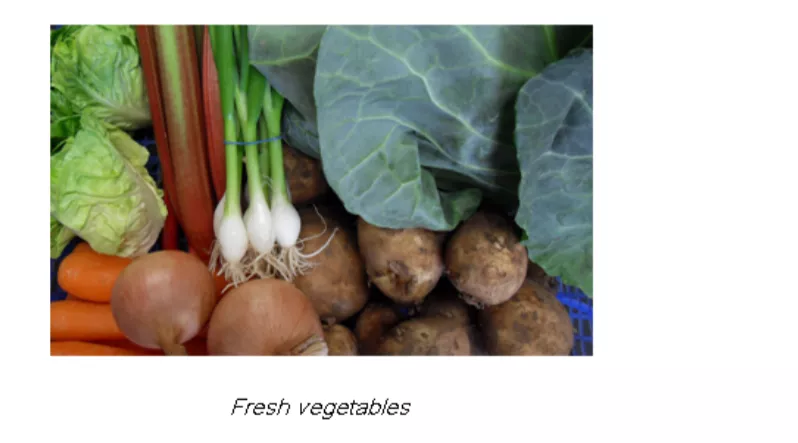
Chemistry will supply you with the knowledge and understanding to engage as informed citizens with science based issues.
You will use contemporary and relevant contexts of interest such as environmental issues to gain greater scientific knowledge.
You will study the patterns and properties of the elements and how these combine to produce useful materials, such as air and water among others.
Throughout the course you will develop practical skills, powers of analysis and the ability to apply chemical concepts to unfamiliar situations.
Being a Good Chemistry Student
You are beginning the study of one of the most interesting subjects that you will ever come across.
As is the case with all subjects, what you will get out of Chemistry will depend upon what you put into it.
Chemistry can intrigue and enlighten you.
It all depends upon the effort you are willing to put into your studies.
If you keep an open mind, and listen to your teacher, a course in Chemistry will change the way you view the world! Chemistry is a skill based course, and many of the most important lessons will come in the first few weeks.
You must start off with good study habits from the very beginning.
Below are some tips to help ensure that you get the most out of the course.
Do the reading faithfully.
Don’t try to get through the course by just listening to your teacher. Your teacher will assume that you are coming to class having read the text, and they will expect you to have that background knowledge required to follow the lessons.
Most importantly, you will not be able to ask clarifying questions, if you have never read the book.
Ask as many questions as you want to
Like any teacher, your Chemistry teacher uses the feedback from the class to determine whether or not his or her lessons are clear enough. The types of questions that you and your classmates ask will tell your teacher more than the results of any exam.
Some students are embarrassed to admit that something is unclear, but this subject is new to you.
There is no shame in admitting that you are not sure about a subject is new to you!
Get help early and often.
As soon as you notice that you are not following along with the class discussion you should address the problem.
There are so many sources for extra help, and you should take advantage of them.
Make an appointment to see your teacher after school, or ask one of your classmates for help.
Search the Internet for sites with additional information.
Don’t stop getting extra help until you feel confident in your grasp of the subject.
Take advantage of the learning opportunities in Laboratory classes.
Many of the lab activities that you will do will seem exciting. Violent chemical reactions will cause every heart to beat a little faster.
However, if you don’t understand the concepts behind the activities than the activities become nothing more than a magic show! Strive to understand every aspect of these activities and you will find that they are a fun way to learn Chemistry.
Do your written homework correctly.
It may seem that you are saving time when you copy homework from a friend or from the back of a textbook, but you are really causing yourself some trouble.
Each assignment is designed to reinforce a specific concept. If you don’t do the homework correctly, you may not master the concepts.
Remember that your task is never to complete a specific set of problems, but rather to master a topic or skill.
Study in groups.
Chemistry is much harder when you try to learn it in isolation. Form study groups from the first week of school.
Having people to talk to about Chemistry will help you avoid the frustration that comes from feeling you are the only one having difficulty with a particular concept or type of Math problem.
You will also be more likely to ask questions when you see that an idea may not be clear to others as well.
Some Careers in Chemistry
Chemists are the people who transform the everyday materials around us into amazing things.
Some chemists work on cures for cancer while others monitor the ozone protecting us from the sun.
Still others discover new materials to make our homes warmer in the winter, or new textiles to be used in the latest fashions.
The knowledge gained through the study of chemistry opens many career pathways. Here are just a few of the careers chosen by chemists.
• Agricultural Chemistry
• Biochemistry
• Chemical Education
• Chemical Engineering
• Consumer Product Chemistry
• Environmental Chemistry
• Food and Flavor Chemistry
• Forensic Chemistry
• Medicinal Chemistry
Some Career Descriptions:
1. Biochemistry
Biochemistry is the study of the structure, composition, and chemical reactions of substances in living systems.
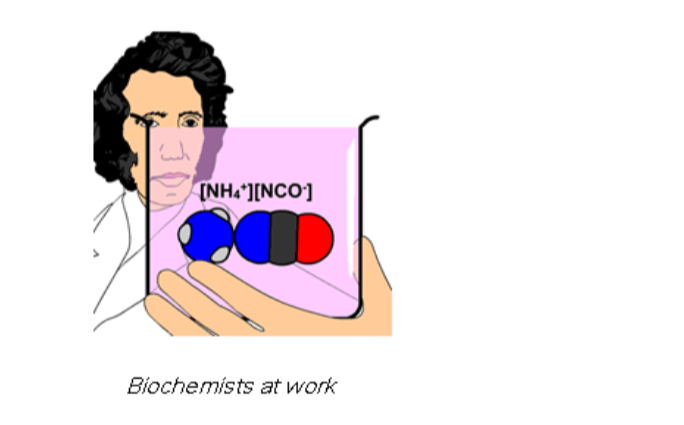
Biochemistry emerged as a separate discipline when scientists combined biology with organic, inorganic, or physical chemistry and began to study such topics as how living things obtain energy from food, the chemical basis of heredity, and what fundamental changes occur in disease.
Biochemistry is applied to medicine, dentistry, veterinary medicine and food science.
2. Chemical Engineering
Chemical engineers apply the principles of chemistry, math, and physics to the design and operation of large-scale chemical manufacturing processes.
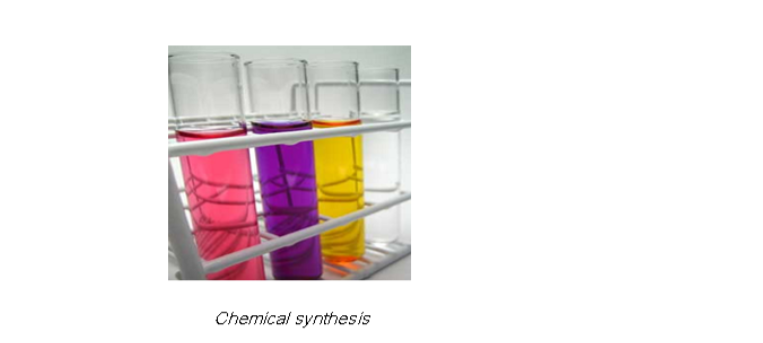
They translate processes developed in the lab into practical applications for the production of products such as plastics, medicines, detergents, and fuels; design plants to maximize productivity and minimize costs; and evaluate plant operations for performance and product quality.
Chemical engineers are employed by almost all companies in the chemical process industry.
3. Forensic Chemists
A forensic chemist is a professional chemist who analyzes evidence that is brought in from crime scenes and reaches a conclusion based on tests run on that piece of evidence.
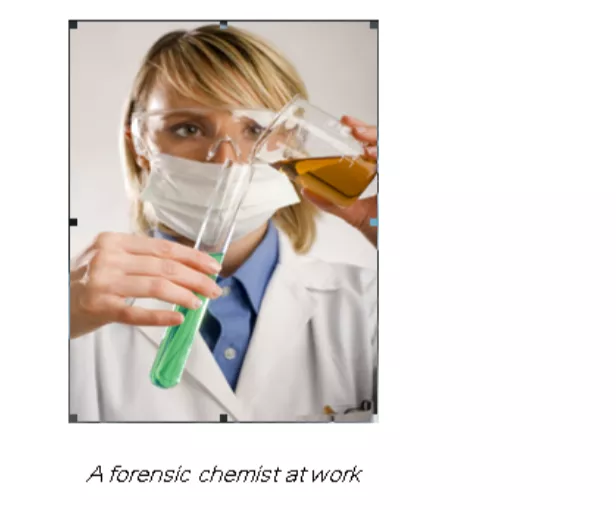
A forensic chemist’s job is to identify and characterize the evidence as part of the larger process of solving a crime. Forensic chemists rarely conduct any investigative work; they handle the evidence collected from the crime scene.
4. Medicinal Chemistry
Medicinal chemistry is the application of chemical research techniques to the synthesis of pharmaceuticals.

During the early stages of medicinal chemistry development, scientists were primarily concerned with the isolation of medicinal agents found in plants.
Today, scientists in this field are also equally concerned with the creation of new synthetic drug compounds. Medicinal chemistry is almost always geared toward drug discovery and development.
5. Food and Flavor Chemists
Food chemistry focuses on the chemistry of foods, their deterioration, and the principles underlying the improvement of foods for consumers.
It applies chemistry to developing, processing, packaging, preserving, storing, and distributing foods and beverages to obtain safe, economical, and aesthetically pleasing food supplies.
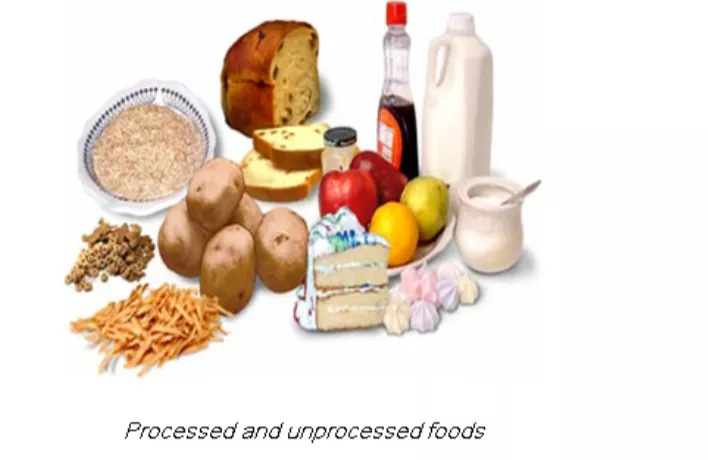
Few people recognize the science behind the food they consume. While food science involves chemistry, biology, physics, biochemistry, microbiology, nutrition, and engineering, the major portion of a food science curriculum is chemistry.
Food chemistry encompasses everything from agricultural raw materials to consumer end-use products.
2024 FORM 1 2 3 4 REVISION RESOURCES
FORM 1 2 3 4 TERM 1 2 3 OPENER , MID AND END TERM EXAMS
1995-2024 KCSE KNEC PAPERS QUESTIONS,ANSWERS AND REPORT
2008-2024 KCSE FORM 4 COUNTY MOCKS
FORM 1 2 3 4 SCHEMES OF WORK
FORM 1 2 3 4 LESSON PLANS
FORM 1 2 3 4 CLASS REVISION NOTES
FORM 1 2 3 4 TERM 1 2 3 HOLIDAY ASSISNMENTS
FORM 3 4 SETBOOKS STUDY GUIDES
FORM 1 2 3 4 TOPICAL TESTS
FORM 1 2 3 4 REVISION BOOKLETS
LIFE SKILLS NOTES
FORM 1 2 3 4 SYLLABUS
KENYA SCHOOL CODES
HOW TO REVISE AND PASS EXAMS
GUIDANCE AND CONSELLING NOTES
CLICK HERE TO DOWNLOAD ALL LATEST 2024 KCSE REVISION MOCKS
KCSE COUNTY MOCKS DOWNLOADS 2024
2023 KCSE COUNTY MOCKS DOWNLOADS
- 2023 KAPSABET BOYS POST MOCK
- PANGANI MOCK KCSE 2023
- KCSE 2023 LAINAKU II FORM 4 JOINT MOCK
- KENYA HIGH POST MOCK
- KALA MOCK =Password is- subjectcodeKALA2023
- KCSE 2023 SAMIA JOINT MOCK
LANJET 2023 EVALUATION MOCK
2023 EVALUATION MOCK nyandarua trial 4
2023 EVALUATION MOCK nyandarua trial 3
KCSE 2023 MOCKS NYARIRA CLUSTER EXAMS
KCSE 2023 CEKANA MOCKS
KCSE 2023 ACHIEVERS JOINT MOCK
- KAPSABET 2 MOCK 2023
- MOKASA 2 MOCK 2023
- 2023 Mang’u high revision mock
- FORM 4 TERM 2 BAKALE EXAM
CATHOLIC DIOCESE OF KAKAMEGA MOCK
- BSJE JOINT MOCK EXAM 2023
- MARANDA HIGH SCHOOL MOCK JUNE
- KCSE 2023 mock Nginda girls
- 2023 Kcse mock Wahundura
- 2023 Kcse mock set 22
KCSE 2023 KASSU MOCK EXAMS
- 2023 KCSE EAGLE TRIAL 1 MOCK
- 2023 lainaku revision mock
- 2023 FORM 4 evaluation exams set 18
- 2023 FORM 4 evaluation exams set 17
- 2023 FORM 4 evaluation exams set 16
LUGARI CONSTITUENCY -MOCK 1
- 2023 KCSE FORM 4 EVALUATION TEST
2023 mokasa mocks revision exams
- SUKELLEMO JOINT PRE-MOCK EXAMS
- Mumias west pre mock kcse exams
- 2023 SUNRISE PRE-MOCK
- 2023 kcse arise and shine pre-mock
- MECS CLUSTER JOINT MOCK EXAM
- Chogoria murugi zone pre-mock
- MOMALICHE 2 EXAMS PRE MOCK
- ASUMBI PRE MOCK EXAMS 2023
- 2023 MARANDA HIGH PRE-MOCK
- KAPSABET INTERNAL TRIAL 1 2023
- FORM 4 EVALUATION TEST 2023
- 2023 FORM 4 evaluation exams
Mock exams and pre-mock exams are practice tests that are taken before the actual exams.
2022 COUNTY MOCKS 38 EXAMS
2021-22 COUNTY MOCKS 36 EXAMS
2020-21 COUNTY MOCKS 24 EXAMS
2019 COUNTY MOCKS 44 EXAMS
2018 COUNTY MOCKS 23 COUNTIES EXAMS
2017 COUNTY MOCKS 25 COUNTIES EXAMS
2016 COUNTY MOCKS 16 COUNTIES
2015 COUNTY MOCKS 20 COUNTIES
2008 , 2009 , 2010 , 2011 , 2012 , 2013, 2014 COUNTY MOCKS 25 COUNTIES
2023 KCSE COUNTY MOCKS Mock exams and pre-mock exams are practice tests that are taken before the actual exams.
They are designed to help students get a sense of what to expect in the real exam and to identify areas where they need to improve.
The purpose of taking mock exams is to help students build confidence, develop test-taking strategies, and identify their strengths and weaknesses.
Pre-mock exams are usually taken a few weeks or months before the actual exam, while mock exams are usually taken closer to the exam date.
 WhatsApp us Now
WhatsApp us Now